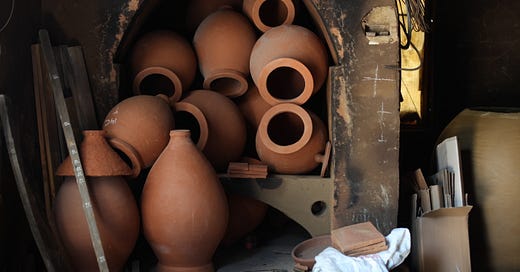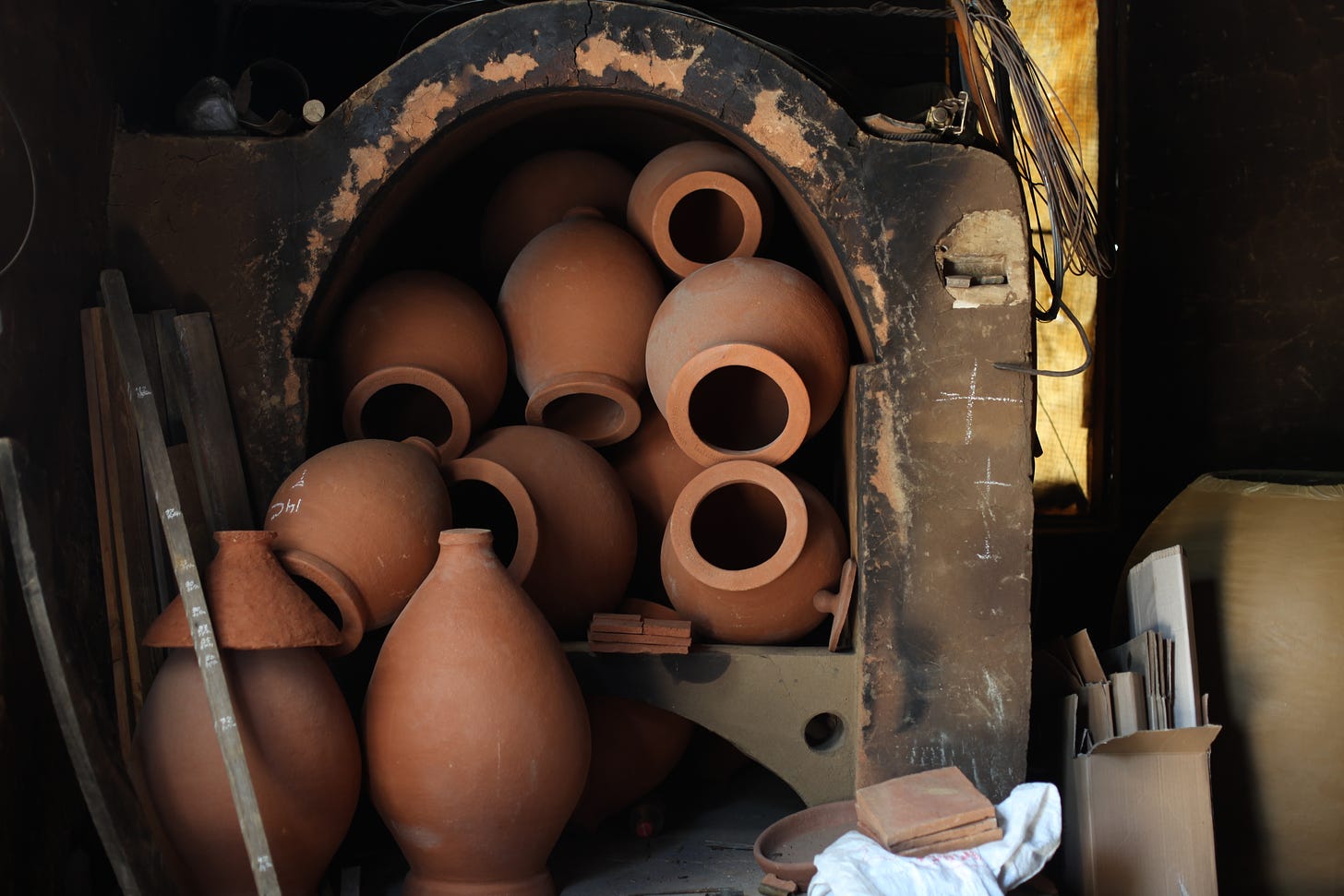Into Ének Peterson's qvevri
Hannah Fuellenkemper's adventures in imereti, Georgia include some very unsavoury duties inside a qvevri.
Someone had to scoop out the death juice. It was five days ago that we’d turned up at Ramaz Nikoladze’s for a tasting with no money for the driver, no intention to stay and not much of a plan but now we were on our way again and on the way to Ének’s, stuffed with katchapuri, memories and in-between 150 bottles and a corker in a neighbour’s car swooshing through the dark, the rain, through Dimi, past Didimi’s, heads spinning from the last tasting then to more drinking, talking talking and chewing bread.
It was hard to imagine that in 36 hours we’d be in Amsterdam. That in 24 we’d be in Tbilisi and that it had only been five days and what must have been a million watermelons-ago that we’d first cut through the Rikoti Pass, the tunnel dividing Georgia into east and west, dry and wet, full skin macerations and a little less.
We met Ének back in March, a 23 year-young, Georgian speaking (self-taught) American with an ancient soul, a house with vines but no running water and a job in Tbilisi. Her first trip to Georgia was four years ago to sing. Her last was two years ago — to stay. Last September a six-strong, strong group of winemakers dug in her qvevri and a week later she was foot-stomping her first vintage. Her second will be exported to the US but she still gets water from the well down the road. Things happen whole-haul in Georgia or they don’t happen at all.
On our first trip to Georgia we learned not all wines taste like horse blanket. That there are also almonds and waxy walnuts, deeply ripe to rotting pears and dark apricots, earth mushrooms and an assortment of long brew teas. But still I found some of the Kahetian wines arduous — tannic bruisers with rough, swarthy skins — and returned home with drunken notes like ‘Feels like being pushed out of a plane into a desert’ and ‘Hot laundry out of dryer-dry’ i.e. not for me.
So this trip we went out west to Imereti, where the wines have higher acidity, the humid foothills are deep grape-blues and sea-glass greens and where the vines used to grow up trees. We swam, we hiked, we hung, sitting out the heat in cellars and on shady steps. We bottled, corked, labelled, folded, boxed, stashed and stacked ready for dispatch to London and now we were with Ének.
And someone had to go down the qvevri to scoop out the dead mice.
Fitting into a qvevri can be a matter of millimetres which can mean a matter of shorts, or none. You crouch down deep and dark knees high in the cool clay pod and bucket-swoop-water-mice-swish then push up and out over your head — don't splash — friend hands grab bucket repeat 'till dry, then scrub. All around you the clay cool walls, calm dark and earth echo quiet and you think about the wine. About whether it thinks. About how a grape can translate to sun baked peaches on hot, cracked clay earth not just 'grape'. Into grass, pineapple and coriander, honeydew rinds and bee nectar. How you can taste, somehow, the skinny cows dawdling, tails flicking on the dusty roads but also katchapuri flour. About the past week and about Georgia, its tomatoes and all the watermelons. Of the people that cooked for you. Of taking big lemonade slurps feet in the damp grass late into hot nights, the trip ahead and about how when Ének sang, the qvevri sang too.





